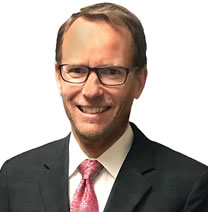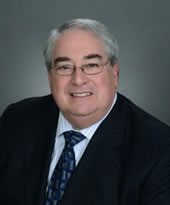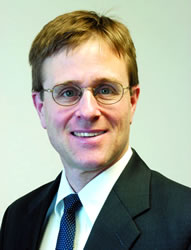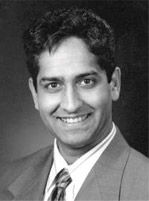Metabolic and Bariatric surgery and endoscopy play increasingly important roles in the treatment of type two diabetes and obesity. American Diabetes Association and other societal guidelines now incorporate sleeve gastrectomy and gastric bypass into their recommended treatment protocols. Metabolic surgery is also offered as part of a treatment plan for individuals with degenerative hip and knee problems, obstructive sleep apnea, pseudotumor cerebri, coronary heart disease, severe hypertension, and other obesity-related health problems. Most, but not all, health plans cover metabolic and bariatric surgery. When complications lead to medical malpractice litigation, a bariatric surgery expert witness is often called upon to testify on standard of care, determine if there was a breach of standard of care, and assess causation of damages. One of the primary issues for the bariatric surgery expert witness is determining whether complications suffered were a result of a breach of the applicable standard of care.
Bariatric Surgery Complications: Potentially Vulnerable Patients
Decades ago, bariatric surgical procedures were considered higher risk, in part because the patient population often exhibited both morbid obesity and significant medical conditions. As surgeons and centers gained more experience, moving from open surgery to laparoscopy techniques, the risks fell, and the procedures became more widely available. Complications and adverse outcomes can occur with any medical procedures, and bariatric surgery may involve a patient with vulnerability due to the underlying obesity and health conditions. The types of complications after metabolic surgery fall into two broad categories, those that are specific to the surgical procedure, and those that stem from a stress upon the patient's general health conditions.
The most serious primary complications of sleeve gastrectomy, Roux en Y gastric bypass or duodenal switch are leak from the stomach or intestine causing peritonitis or sepsis, and postoperative hemorrhage from the surgical tissues. Both leak and hemorrhage usually require significant intervention to resolve the problem and may lead to further complications. Likewise, the surgical and anesthesia procedures may expose the vulnerable patient to risks of pneumonia, respiratory failure, myocardial infarction, cardiac arrhythmias, pulmonary embolus, deep venous thrombosis, delirium, stroke, and kidney failure. When litigation arises, the bariatric surgery expert witness must carefully investigate and explain the root causes of these complications to the judge and jury.
Resolving Complications from Bariatric Surgery and endoscopy: Timely Intervention
Complications occur in a small percentage of every type of medical procedure, including metabolic surgery and endoscopy. Efforts to prevent and minimize the impact of such complications are often a primary concern of bariatric surgeons. Timely intervention after a complication has occurred is often a consideration when examining the course of events in a medical malpractice case. After surgery, timely and thoughtful intervention can often reduce harm or disability. Allegations of failure to respond to a complication with timely and well-chosen interventions can best be addressed by an experienced bariatric surgery expert witness.
Liability and Bariatric Surgery Facilities: Hospitals and Ambulatory Surgery Centers
The facility where the bariatric surgery took place may also become a party to litigation. Nationally accredited centers, which used to be called "centers of excellence", must adhere to rigorous requirements, and undergo site inspections to maintain the accreditation. With that accreditation comes an adherence to policies that allow for timely and appropriate imaging, availability of suitable equipment and personnel, a path for escalation of care decisions, and capabilities to deliver appropriate treatments. Every accredited center must have a Medical Director, a key role assumed by a bariatric surgeon who oversees the hospital’s compliance with the accreditation standards. Hospitals or ambulatory surgery centers (ASC’s) that do not have national accreditation specifically will nonetheless have similar responsibilities to protect patients and a leader to oversee the effort.
A qualified bariatric surgery expert witness – one who also wears the hat of Medical Director of a facility - may also be well-positioned to address the issue of the potential liability of the facility where the procedure took place.
Conclusion
Like all medical procedures, bariatric surgery may result in complications and allegations of medical malpractice against the treating providers and the facility. In such lawsuits the parties may find an experienced bariatric surgery expert witness valuable to assist the trier of fact in fully understanding the evidence in the case.
Dr. Kent Sasse, MD,MPH, FACS, FASCRS, FASMBS, is a Bariatric surgery thought leader. He has performed over 5,000 primary bariatric surgical procedures and 500 revisional bariatric procedures. He is a Medical Director of a nationally accredited bariatric surgery center and an award-winning teacher. Dr. Sasse is a widely published scientist and author of nine books as well as an inventor and patent holder of a bariatric surgical device. His clinical experience includes bariatric surgery and endoscopy, sleeve gastrectomy, gastric bypass, duodenal switch, reoperative surgery, revisional surgery, hiatal hernia, wound care, Barrett's esophagus, hernia mesh, hernia mesh explantation, endoscopic stenting, leaks, Ambulatory Surgery Centers, and solving complications. Dr. Sasse is a prolific public speaker and he serves on the University of Nevada School of Medicine faculty. He is an experienced expert witness at both deposition and trial. Dr. Sasse can be contacted at 707.597.2999 or drsasse@sassesurgical.com.
©Copyright - All Rights Reserved
DO NOT REPRODUCE WITHOUT WRITTEN PERMISSION BY AUTHOR.











